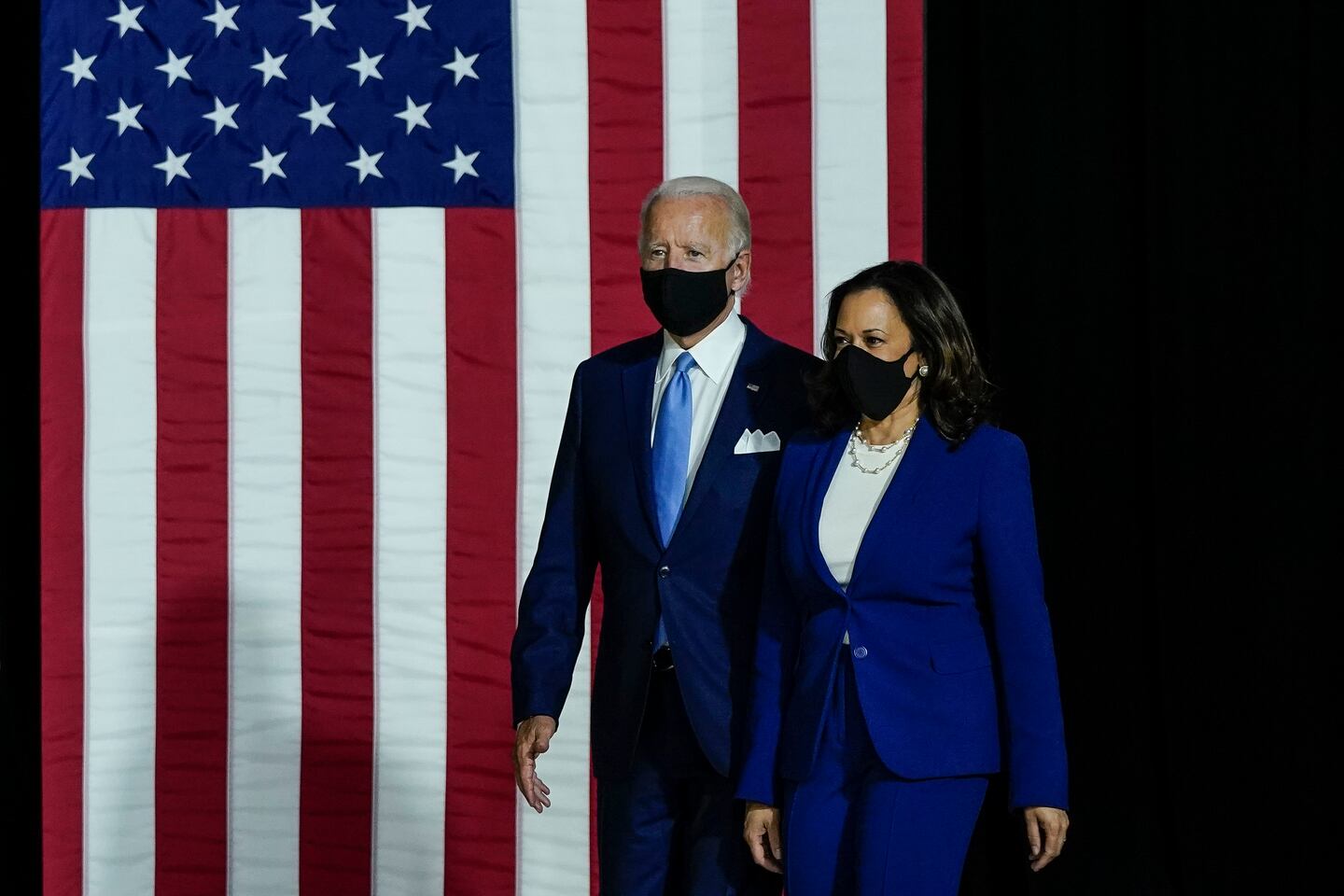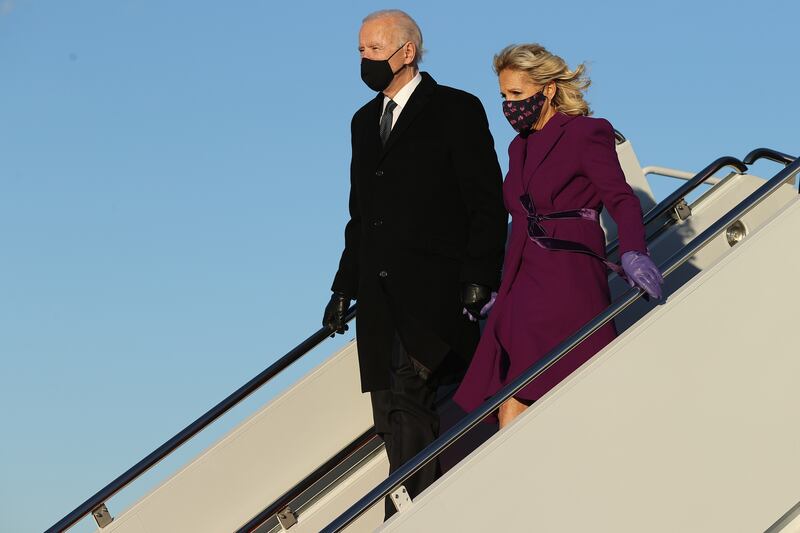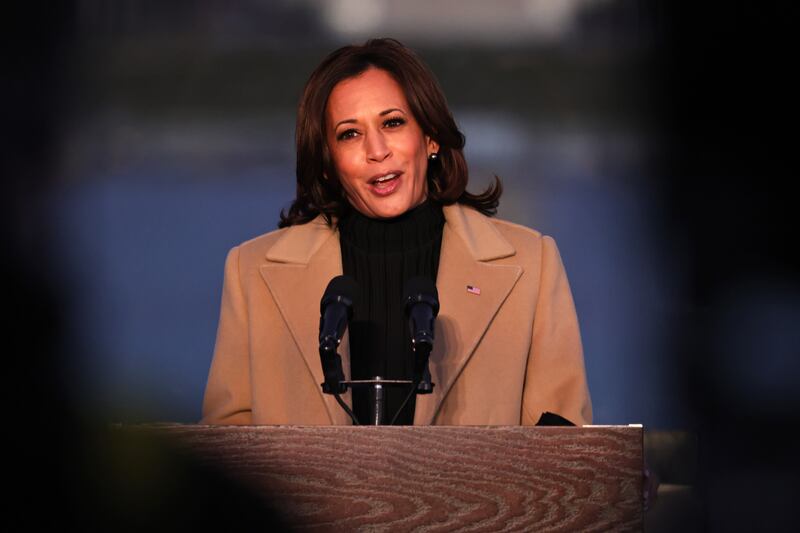
The Business of Fashion
Agenda-setting intelligence, analysis and advice for the global fashion community.

Agenda-setting intelligence, analysis and advice for the global fashion community.

It was the White House that catapulted Prabal Gurung’s label into mainstream American fashion, just shy of a decade ago. First Lady Michelle Obama had worn a twill dress from his Spring 2010 collection to an event at the National Museum of American History. Two months later, she donned one of Gurung’s custom creations — a red draped gown — to the White House Correspondents’ Dinner.
The Trump years have afforded fewer opportunities. Most major American designers, including Gurung, have steered clear of Washington since 2017. Some made their disapproval of the Trump administration’s policies clear, while others feared a consumer backlash if Melania Trump was spotted wearing their brand.
But this hostile relationship with American politics will end on Wednesday when President Joe Biden and Vice President Kamala Harris are sworn into office. Harris, the first woman to serve as vice president, is already a coveted client among American designers, who are eager to dress her alongside the incoming first lady, Jill Biden. (Yesterday Dr. Biden wore a complete ensemble, mask included, by New York-based independent designer Jonathan Cohen, a sign that conversations between US designers and the Biden administration have already begun.

“I’m friends with so many designers and we’re all so excited — we’ve felt a weight lifted off our shoulders,” said Gurung, who dressed Harris for her appearance on the last day of the Democratic National Convention in August. “It would be my immense pleasure and honour to dress the vice president and first lady and members of the first family.”
ADVERTISEMENT
For the fashion industry, welcoming the new administration isn’t just about new opportunities under the spotlight. Designers, brands, retailers and the organisations that represent them are looking for support and solutions after a year marked by bankruptcies, store closures and lockdowns. Some measures will happen quickly: Biden has said America will rejoin the Paris climate accord on his first day and he is expected to quickly move on a $1.9 trillion stimulus package and vaccine rollout plan.
Other changes, including trade policy, will take longer. A Biden presidency is far from a panacea to the previous administration, and the cultural issues brought to a head during the Trump era will be much harder to navigate moving forward.
Coronavirus Recovery
First on the list will be the administration’s plan for handling coronavirus, and support for brands, retailers and designers struggling to stay afloat. Many companies are preparing for months more of the status quo before enough people receive the vaccine for herd immunity to kick in.
US clothing retail sales were down 12 percent in December according to the US Department of Commerce, marking another slowdown in the road to recovery despite news of a vaccine. Employers also cut 140,000 jobs in December, the first large cut since the pandemic began last year.
“I’m really nervous to see what’s going to happen in the next year if we don’t get the stimulus fast,” said designer Hilary Taymour of Collina Strada. Many of the models she hires for collections rely on freelance jobs and other gig work, and they have been forced to leave the city or move home during the pandemic. “The fact that we’ve gotten basically no money and no support from our government in over a year is crazy.”
Biden’s nearly $2 trillion economic rescue plan will include additional individual stimulus payments, enhanced unemployment aid for freelance workers and, perhaps most importantly, a $15 billion grant programme for small businesses outside of the existing Paycheck Protection Program. Enacting those plans quickly for brands and retailers will be crucial for the industry in the coming months.
Trade Policy Shifts
ADVERTISEMENT
Biden is widely expected to take a more measured approach to trade than Trump, who repeatedly rattled global markets with surprise tariffs and restrictions. That doesn’t mean the outgoing administration’s duties on Chinese clothing, shoes and leather goods are going away anytime soon. Biden told The New York Times last month that he won’t be making any “immediate moves” regarding tariffs.
It’s also unclear whether Biden and his nominee for US trade representative, Katherine Tai, will attempt to rejoin the Trans-Pacific Partnership, the trade deal President Barack Obama negotiated in 2016 with a dozen Pacific Rim countries. The fate of talks initiated last year with the UK and Kenya are also unknown. Publicly, Biden and Tai have emphasised American workers as the centre of their plans on trade, straddling a line between supporting domestic manufacturing while still aiming to reduce barriers to free trade.
“Americans don’t just benefit from lower prices and greater selection in shops and markets, Americans also benefit from having good jobs with good wages,” Tai said in a speech last week.
Stephen Lamar, president of the American Apparel & Footwear Association, an industry group, said he expects “over time we’ll see some of the [Trump-era] tariffs come off.”
In an e-mail, The Council of Fashion Designers of America has also called for Biden to unwind tariffs while advocating for tax incentives to support designers who manufacture their collections in the US. The trade organisation is also hopeful that Biden will take the right steps toward protecting the fashion industry.
Brand Activism Is Here to Stay
In the void left by social and political institutions, many consumers turned to corporations to provide moral leadership. Brands felt pressure to adhere to a larger set of responsibilities ranging from environmental policies to supporting the Black Lives Matter movement. Often, consumers wanted brands to take stances in direct opposition to the Trump administration’s latest words and actions.
The Biden administration is more in line with the new, more-progressive strain of corporate values that developed over the last few years. In a sense, this could complicate brands’ efforts to remain in sync with their customers’ values. Rather than simply opposing Trump, companies may have to choose between supporting a moderate Biden position or more-liberal views expressed by activists or lawmakers in Congress.
ADVERTISEMENT
“Every fashion brand is going to have to take their stance on what they believe in because there’s going to be so many versions of liberal in the next four years,” said Taymour.
For many designers and brands, this may mean a larger focus on initiatives and policies that weren’t possible during the last four years.
The biggest mistake that we could make now is, for everyone that voted for positive change, to say, ‘Our job is done, and we can relax.’
“There is no going back,” said Hildy Kuryk, partner at boutique brand consultancy Artemis Strategies. “This engagement will only increase over time, and while there is a new administration, which may be more ‘aligned’ with the issues your brand has espoused or supported — the consumer is still watching closely.”
Still, the industry needs to continue its efforts pushing for more inclusive policies, said Gurung. Just because the Biden administration is more sympathetic to these causes doesn’t mean real change will occur.
“The biggest mistake that we could make now is, for everyone that voted for positive change, to say, ‘Our job is done, and we can relax,’” he said. “During Trump, we were vocal about how unhappy we are … But now we need to come up with solutions and provide them to the administration collectively, and it becomes important that our industry is wide awake and extremely diligent.”
Climate Change a Top Priority
Sustainability became trendy in fashion during the Trump administration, but there was little hope for action while Republicans were in charge. Now, with Democrats in control at the White House and in Congress, some in the industry hope momentum in the private sector translates into government action.
The designer Eileen Fisher, who has long championed sustainable designs and manufacturing processes, said she hopes Biden will implement incentives and regulations for the rest of the industry to adopt higher standards to fight climate change.
“For us, it’s [about] keep on doing more, but it makes me hopeful that there will be more pressure for all of us in the industry to do better,” Fisher told BoF in November, ahead of the election.
Biden’s nearly $2 trillion climate change plan includes commitments to rejoin the Paris Climate Accord, cancel the Keystone XL pipeline and achieve net-zero emissions no later than 2050.
These plans may galvanise companies to re-evaluate their own environmental commitments and supply chains.
“Fashion brands have long been working to combat and to orient their supply chains to combat climate change, and more and more are participating in that,” said Lamar. “That’s one of the legacies of Covid-19, and the Biden administration has made it clear that … their policies will be consistent with where fashion is and where it needs to go.”
However, it remains unclear how much the administration will be able to accomplish once in office, and the extent to which brands will be incentivised to follow through on environmental initiatives.

“Obviously it’s great that there’s going to be more efforts to rejoin the Paris accord to work with sustainability. But at the same time, you know, I’m not sure,” said Moya Luckett, a media and fashion professor at NYU. “This is an administration that will be fairly centrist and it probably won’t move into quite the same degree of change that is perhaps necessary, particularly in terms of tackling environmental issues and sustainability.”
Ultimately, having a White House that espouses similar values as the fashion industry at large will make a difference in driving cultural discourse at large and — hopefully — subsequent change.
“Fashion isn’t a frivolous thing — it’s a real business that affects lives,” said Gurung. “Culturally, politically, we have immense power … We need to be in action coming up with solutions and we need to be at the table because, God forbid, we become complacent and the next four years becomes a beautiful dream, but everything stays the same.”
Related Articles:
Fashion Leaves the Trump Years Behind
Why Fashion Brands Keep Telling You to Vote
Nordstrom, Tod’s and L’Occitane are all pushing for privatisation. Ultimately, their fate will not be determined by whether they are under the scrutiny of public investors.
The company is in talks with potential investors after filing for insolvency in Europe and closing its US stores. Insiders say efforts to restore the brand to its 1980s heyday clashed with its owners’ desire to quickly juice sales in order to attract a buyer.
The humble trainer, once the reserve of football fans, Britpop kids and the odd skateboarder, has become as ubiquitous as battered Converse All Stars in the 00s indie sleaze years.
Manhattanites had little love for the $25 billion megaproject when it opened five years ago (the pandemic lockdowns didn't help, either). But a constantly shifting mix of stores, restaurants and experiences is now drawing large numbers of both locals and tourists.